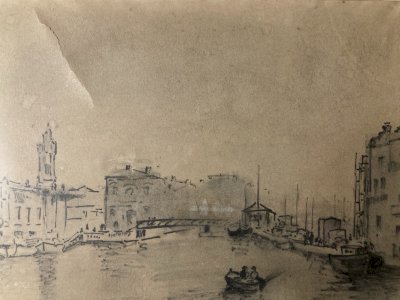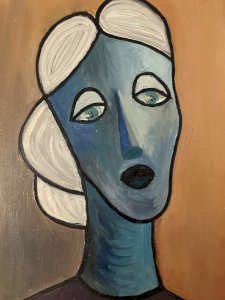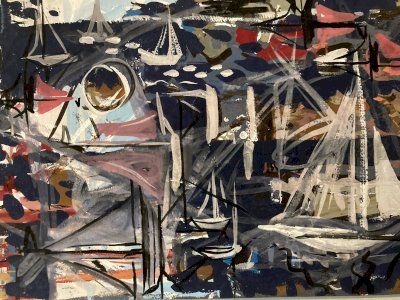- Sell Now
- Home
-
FURNISH
All STORAGE FURNITURE • Wardrobe • Chests of drawers, Chiffonnier • Sideboard • Shelves, Bookshelves • File cabinet • Sewing Furniture • Bar cabinet • TV Stand • Trunk, Chest TABLE & BEDSIDE TABLE • Dinner Table • Coffee table, side table, end table & Bedside • Console, Pedestal table & Selette • Serving Table, Trolley • Card Table • Draper's counter & table SEAT • Sofa • Armchair • Chair • Stool • Bench • Daybed • Beanbag & Footrest • Deckchair & Outdoor DESK, SECRETARY, DRESSING TABLE GARDEN LOUNGE BEDDING • Bed • Bedhead • Cradle, Moses basket CRAFT FURNITURE, WORKSHOP • Workbench • Stool, Ladder, Step • Easel & Trestle SCREEN PIANO
-
DECORATE
All TO PUT • Sculpture, Statuette • Vase & Planter • Dame Jeanne, Bonbonne & Flacon • Bridal globe, Dome • Pin tray, Ashtray • Candlestick & Candle • Photo frame • Stone, Fossil, Mineral • Earth Globe MIRROR WALL DECORATION • Painting • Engraving & Illustration • Poster • Tapestry • Wall Frame • Plate & Sign • Juju Hat & Wall Paniel • Mask • Hunting Trophy • Other object to hang CLOCK, PENDULUM & ALARM CLOCK ARRANGEMENT • Jar, Box & Case • Basket, Wastebasket & Crates • Magazine Rack & Vinyl Holder • Display & Spinner • Coat hook & Coat rack • Furniture Valet & Mannequin • Towel Holder • Suitcase & Travel Bag • Bottle Rack • Umbrella holder BATHROOM OFFICE • Mail holder • Bookends • Sulphide & Paperweight • Stationery FIREPLACE ACCESSORIES HOBBIES • Vintage Sport • Music • Vintage device • Smoking Item • Militaria, Ancient weapon • Miniature Vehicle • Game, Playing Cards • Antique Toy • Collection object & Curiosity BIRD CAGE RELIGION, SPIRITUALITY
- TEXTURE
- ILLUMINATE
-
ACCOMODATE
All TABLE & SERVING • Plate • Silverware • Knife Holder • Glass • Bowl, Mug, Cup • Bowl, Ramekin & Cup • Dish, Cup & Salad Bowl • Tray, Basket & Server • Table Mat • Pitcher, Carafe, Bottle, Tea & Coffee Jug • Ice Bucket • Salt & Pepper shakers, Oil & Vinegar shakers • Sugar and jam maker • Gravy boat • Butter dish • Egg cup • Terrine OLD BALANCE CUTTING BOARD GRINDER CASSEROLE, SAUCEPAN & PAN KITCHEN UTENSIL & ACCESSORY
- TINKER
- Jewelry & Accessories
Login
Description
Original lithograph signed by hand and annotated in pencil — Henri Bataille (1872–1922) Henri Bataille, whose full name is Félix-Henri Bataille, was born on April 4, 1872, in Nîmes, in the south of France, and died on March 2, 1922, in Rueil-Malmaison. He was one of the most popular playwrights of the Belle Époque and the early years of the 20th century. Youth and Education Henri Bataille studied in Paris, notably at the Lycée Louis-le-Grand. He became interested in literature very early and began to publish poetry in the 1890s. He frequented the literary and artistic circles of the capital and formed relationships with several writers and painters of his time. At the age of 20, he published his first collection of poems: La Belle au bois dormant (1892), which reveals a symbolist sensibility. Theatrical Career It was in theater that Henri Bataille found his true path. His first major play, La Lépreuse, premiered in 1896. He achieved success with notable works such as: • La Femme nue (1908) – a sentimental and social drama about romantic passion, which would be adapted to film several times; • Maman Colibri (1904) – on the theme of aging and a mature woman's love for a young man; • L’Enchantement (1900); • Le Scandale (1909). His plays, often performed at the Théâtre de l’Œuvre or the Théâtre Sarah-Bernhardt, are psychological and sentimental dramas, very popular with the public. Style and Themes Henri Bataille distinguishes himself through psychological and sentimental realism, mixed with naturalistic elements and sometimes symbolism. He focuses on describing the torments of the soul, inner conflicts, social tensions, and forbidden or tragic loves. He introduces a form of sensuality and modernity into theater that captivates an audience in search of novelty. His theater is also marked by social criticism, particularly concerning the condition of women, bourgeois appearances, and the hypocrisies of society. Influence and Legacy Henri Bataille enjoyed immense success during his lifetime. His works were translated, performed abroad, and some were adapted to film as early as the beginnings of the 7th art (notably by Abel Gance or Louis Mercanton). Type: Drawing Period: 19th century and earlier Material: Pencil Features: Signed Theme: Character
Réf :
#337494
Related Products
MINIATURE 19th/20th century. Signed painting
MINIATURE 19th/20th century. Signed painting
Comments
Drawing, Pencil, signed Henri Henry Bataille Literature 19th Century Art
450€
31500 Toulouse
Ce site contient des liens d’affiliation pour lesquels je peux recevoir une compensation.
Description
Original lithograph signed by hand and annotated in pencil — Henri Bataille (1872–1922) Henri Bataille, whose full name is Félix-Henri Bataille, was born on April 4, 1872, in Nîmes, in the south of France, and died on March 2, 1922, in Rueil-Malmaison. He was one of the most popular playwrights of the Belle Époque and the early years of the 20th century. Youth and Education Henri Bataille studied in Paris, notably at the Lycée Louis-le-Grand. He became interested in literature very early and began to publish poetry in the 1890s. He frequented the literary and artistic circles of the capital and formed relationships with several writers and painters of his time. At the age of 20, he published his first collection of poems: La Belle au bois dormant (1892), which reveals a symbolist sensibility. Theatrical Career It was in theater that Henri Bataille found his true path. His first major play, La Lépreuse, premiered in 1896. He achieved success with notable works such as: • La Femme nue (1908) – a sentimental and social drama about romantic passion, which would be adapted to film several times; • Maman Colibri (1904) – on the theme of aging and a mature woman's love for a young man; • L’Enchantement (1900); • Le Scandale (1909). His plays, often performed at the Théâtre de l’Œuvre or the Théâtre Sarah-Bernhardt, are psychological and sentimental dramas, very popular with the public. Style and Themes Henri Bataille distinguishes himself through psychological and sentimental realism, mixed with naturalistic elements and sometimes symbolism. He focuses on describing the torments of the soul, inner conflicts, social tensions, and forbidden or tragic loves. He introduces a form of sensuality and modernity into theater that captivates an audience in search of novelty. His theater is also marked by social criticism, particularly concerning the condition of women, bourgeois appearances, and the hypocrisies of society. Influence and Legacy Henri Bataille enjoyed immense success during his lifetime. His works were translated, performed abroad, and some were adapted to film as early as the beginnings of the 7th art (notably by Abel Gance or Louis Mercanton). Type: Drawing Period: 19th century and earlier Material: Pencil Features: Signed Theme: Character
Réf :
#337494
 English
English  Français
Français 


















